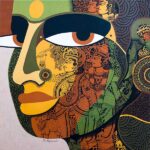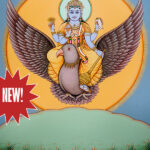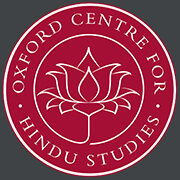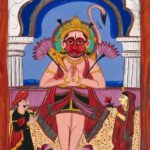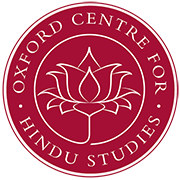A Study of Dharma
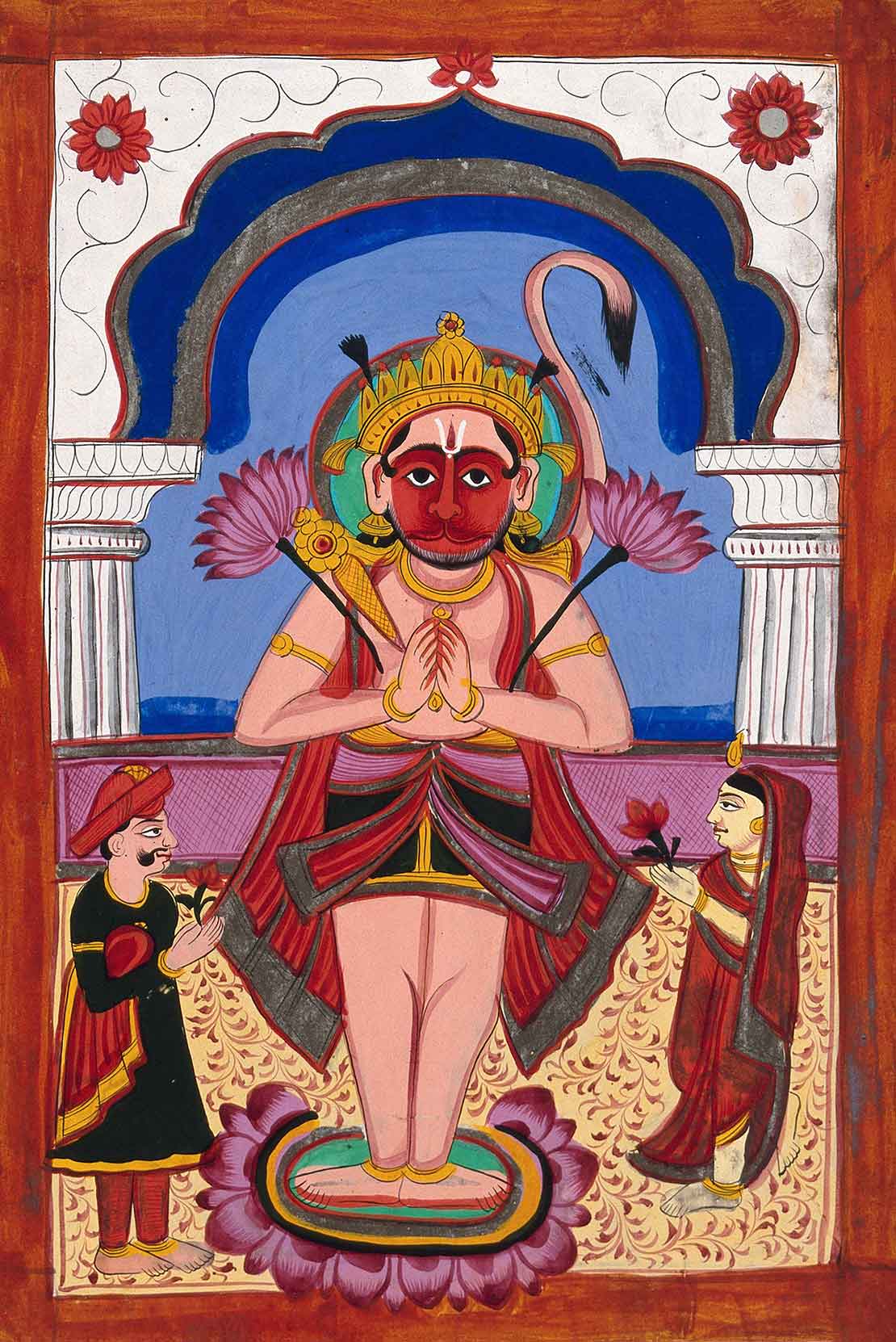
What is dharma and what is its relevance to modern life?
The universal order, the rising and setting of the sun and moon, and the passage of the seasons all fall under the broad heading of dharma. Dharma also refers to a way of living that embodies proper conduct. This can include religious rites, social duties, or adherence to sacred text. Dharma is a manifestation of the fullness of our humanity, appearing as compassion, charity, kindness, truthfulness, and never causing harm to others. Dharma also has a spiritual dimension and can be understood as the practices and lifestyle focused on enlightenment and liberation from this world.
Dharma includes all these and more. In this course we explore each of these different strands of dharma, as well as the tensions and reconciliations that develop between them.
Start Date: 21 July 2024
Course Duration: Six Weeks
160 pages
Optional Assessment: Essay
Pathway(s): Hindu Culture, Hindu Traditions, History of Hinduism, Sacred Texts
On-Demand Video
The main video component of your course. On-demand means you can watch at the time that suits you.
6hr 13min
Five Zoom sessions
Meet tutors and students from other courses and explore other areas of Hindu studies. These sessions are open to students enrolled in any course.
Monday 29 July 2pm
Tuesday 6 August 2pm
Thursday 15 August 3pm
Saturday 24 August 5pm
Sunday 1 September 6pm
These are all UK times. Recordings are available for any sessions you miss
£145
![]() Click here to download introduction (pdf)
Click here to download introduction (pdf)
Session One: The Concept of Dharma
We open with a consideration of the relationship between dharma and karma. In Hinduism, dharma pertains not only to human conduct but also defines the order of the world as a whole. The world has an identifiable order in terms of the lives of all beings, the changing of the seasons, and the progression of the cosmos. All of this is dharma.
We then briefly consider human dharma: as ritual action, as following sacred text, as acceptance of social and familial responsibilities, as action that is based on principles of pure virtue, and as the spiritual pursuit of liberation from this world. All of these are also dharma.
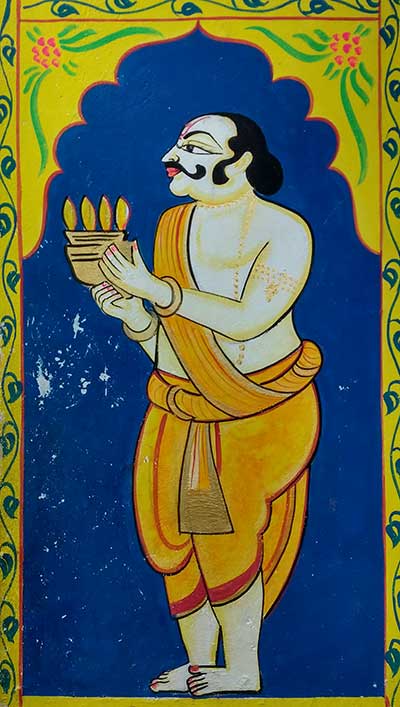 Session Two: Ritual, Social Duty, and Sacred Text
Session Two: Ritual, Social Duty, and Sacred Text
We begin this session with a focus on dharma as religious ritual. In the Indian context this relates primarily to the Vedic ritual of making offerings into a sacred fire, the Tantric rites in which sacred images are worshipped, and folk rituals practised in towns and villages. We then consider varṇa and āśrama – social class and stages of life – as the key to dharma, raising questions about social duty and the origins of the caste system. We conclude with a discussion of texts known as dharma-śāstras and the Manu Smṛti – raising the vital question of the status of ancient texts in the modern world.
Session Three: Sanātana-Dharma – The Dharma of Pure Virtue
We move on to consider sanātana-dharma, which can be defined as the dharma of pure virtue. Here dharma is understood as the universal mode of living that applies equally to all human beings, regardless of time, place, or social status. We look at a range of verses from the Mahābhārata and other texts, which seek to establish the exact precepts on which a life dedicated to dharma should be based, looking in particular at the principle of ahiṁsā, not harming, and the problems faced in trying to live a life based solely on dharma. We conclude with a consideration of the tensions that arise when the ideals of pure virtue conflict with ritual acts or sacred text.
Session Four: The Four Goals of Human Life
The fourth session focuses on the four puruṣārthas – legitimate life goals – as established in early texts such as the Mahābhārata, Viṣṇu Purāṇa, and the Kāma Sūtra. These aims are:
- Dharma, the proper way of living;
- Artha, the gaining of wealth and prosperity;
- Kāma, the pursuit of pleasure; and
- Mokṣa, the quest for spiritual enlightenment.
Is it possible to reconcile the apparent contradictions between these goals of life? Does dharma give legitimacy to artha and kāma? Is dharma an essential part of the path to spiritual liberation.
Session Five: Dharma and the Bhagavad-gītā
We now consider dharma in the Bhagavad-gītā. We discuss Arjuna’s argument that engaging in battle against family members would be contrary to dharma. We then turn to look at precisely why Kṛṣṇa rejects Arjuna’s position and offers a contrasting understanding of dharma. We go on to review the Gītā’s insight into ahiṁsā and how actions based on a worldly ideal of dharma can be reconciled with transcendence of worldly concerns.
Session Six: Dharma and Mokṣa-Dharma
In our final session we consider liberation from this world and how this is achieved through adoption of different forms of mokṣa-dharma (the dharma of liberation). We consider two distinct yet related perspectives: enlightenment through realisation of our true spiritual identity (jñāna), and liberation through worship of the Supreme Deity (bhakti). Are these two paths dependent upon the sanātana-dharma of pure virtue? Do spiritual pursuits transcend ideas of right and wrong action on which all other forms of dharma depend?
Your Tutor

Dr Nick Sutton
Nick is the Director – and the heart and soul – of the OCHS Continuing Education Department. He is a dedicated teacher with decades of experience in making sometimes-confusing traditions relevant. He has created over a dozen online courses and is working on many more. He has written translations and commentary on Bhagavad Gītā and the Yoga Sūtra. Nick received his Phd from Lancaster University (1995). His thesis was on the religious teachings of the Mahabharata.
